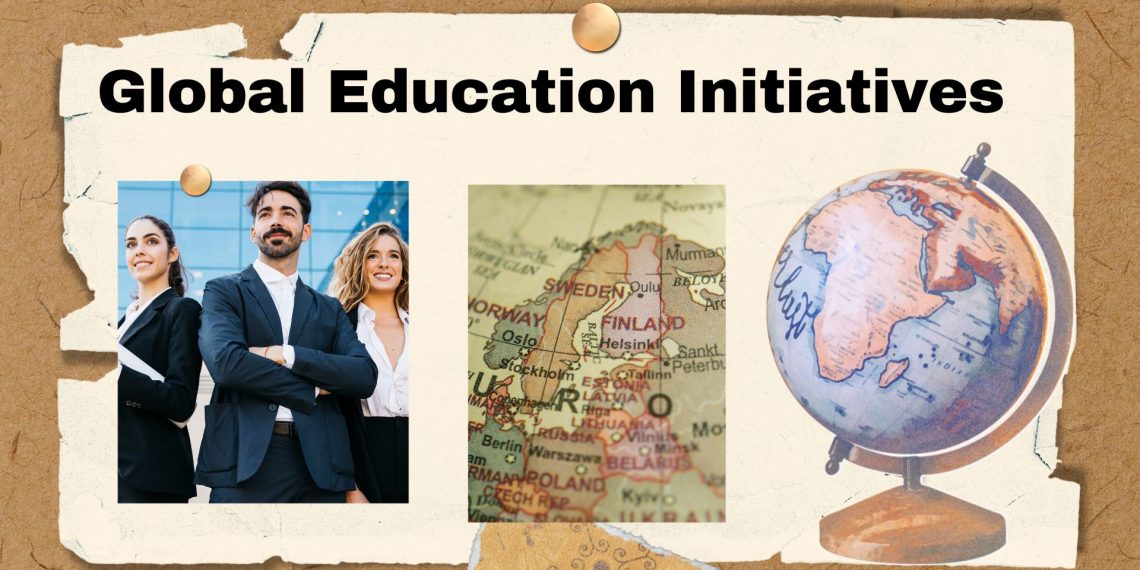Education is the cornerstone of human progress, shaping minds, fostering innovation, and empowering individuals to realize their full potential. In today’s interconnected world, the significance of global education initiatives cannot be overstated. These initiatives transcend borders, cultures, and socio-economic disparities to provide equitable access to quality education for all. In this blog, we will delve into the transformative power of global education initiatives, exploring their impact on individuals, communities, and the world at large.
Understanding Global Education Initiatives
Global education initiatives encompass a wide array of programs, policies, and partnerships aimed at promoting education on a global scale. From UNESCO’s Education for All initiative to the United Nations Sustainable Development Goals (SDG) 4, which aims to ensure inclusive and equitable quality education and promote lifelong learning opportunities for all, these initiatives share a common goal: to harness the power of education as a catalyst for positive change.
One of the key principles underlying global education initiatives is inclusivity. These initiatives recognize the inherent value of diversity and strive to create learning environments that are accessible to all, regardless of background or circumstance. By prioritizing inclusivity, global education initiatives pave the way for greater social cohesion and economic development, breaking down barriers and fostering mutual understanding among individuals from different cultural, ethnic, and socio-economic backgrounds.
Impact on Individuals
At the heart of global education initiatives are individuals whose lives are transformed by access to quality education. For millions of children around the world, education offers a pathway out of poverty and a chance to build a better future. By providing children with the knowledge and skills they need to succeed, global education initiatives empower them to break the cycle of intergenerational poverty and become agents of change in their communities.
Moreover, education is not just about acquiring knowledge; it is also about developing critical thinking skills, creativity, and empathy. Global education initiatives recognize the importance of nurturing these skills in today’s rapidly changing world, where the ability to adapt and innovate is more important than ever. By fostering a culture of lifelong learning, these initiatives prepare individuals to navigate the complexities of the modern world and contribute meaningfully to society.
Impact on Communities
The impact of global education initiatives extends beyond individual learners to entire communities and societies. Access to quality education has been shown to correlate with lower rates of unemployment, higher wages, and improved health outcomes. By investing in education, governments and organizations can stimulate economic growth, reduce inequality, and promote social stability.
Furthermore, education plays a crucial role in fostering civic engagement and democratic participation. Informed and educated citizens are better equipped to participate in the political process, hold their leaders accountable, and advocate for positive change. By promoting civic education and democratic values, global education initiatives contribute to the development of more inclusive and resilient societies.
Impact on the World
In an increasingly interconnected world, the need for global cooperation and collaboration has never been greater. Global education initiatives serve as a platform for fostering international dialogue, cooperation, and understanding. By bringing together educators, policymakers, and stakeholders from around the world, these initiatives facilitate the exchange of ideas, best practices, and resources, driving innovation and driving progress on a global scale.
Moreover, education is a powerful tool for addressing some of the most pressing challenges facing humanity, from climate change and environmental degradation to poverty and inequality. Global education initiatives play a critical role in raising awareness about these issues, equipping individuals with the knowledge and skills they need to become responsible global citizens and advocates for change.
Embracing the Power of Global Education Initiatives
As we look to the future, it is clear that global education initiatives will play an increasingly important role in shaping a more just, equitable, and sustainable world. However, realizing the full potential of these initiatives requires collective action and commitment from all stakeholders. Governments, international organizations, civil society, and the private sector must work together to prioritize education, allocate resources effectively, and address the root causes of inequality and exclusion.
Individuals, too, have a role to play in advancing global education initiatives. Whether through volunteering, advocacy, or supporting organizations that are working to expand access to education, each of us can make a difference in the lives of others. By embracing the power of global education initiatives, we can create a brighter future for generations to come, where every child has the opportunity to learn, grow, and thrive.




